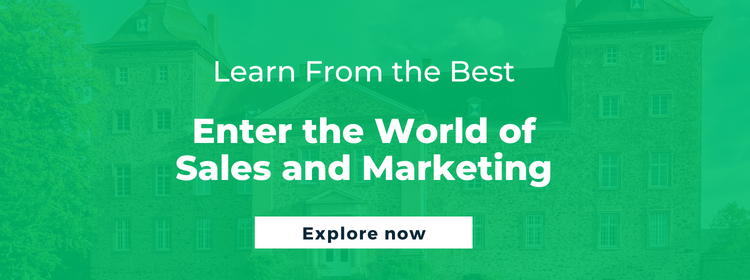What is MarTech? How Does it Help Frame Better Marketing Strategies

Digital technology has become one of the most significant factors influencing the marketing sector. Companies are leveraging social media platforms and big data tools to frame better marketing strategies. This integration of marketing and technology is now popularly called MarTech. Let’s understand what is MarTech and how it is transforming marketing models.
What is MarTech?
MarTech combines two words—marketing and technology. It refers to using software and technologies for online and offline marketing purposes. You can better understand MarTech when you consider it as an ecosystem of marketing tools like emails, websites, social media, mobile apps, etc. Simply put, MarTech refers to software and tools for marketing products or services. It enables businesses to achieve their marketing goals, get more customers, and generate more revenue.
What are the Essentials of a MarTech Implementation?
 Over 60% of marketers in the U.S. are of the opinion that MarTech implementation is complex. Here are a few essentials that you can add to your MarTech strategy for smooth implementation:
Over 60% of marketers in the U.S. are of the opinion that MarTech implementation is complex. Here are a few essentials that you can add to your MarTech strategy for smooth implementation:
Define Your Requirements
Setting up a MarTech stack (explained further in the article) requires huge investment: As per a survey, companies spent around 25.4% of their marketing budget on MarTech in 2022. Therefore, before you prepare a MarTech strategy, you must define your marketing requirements and objectives. This helps you analyze and select the marketing tools or solutions that you require for your marketing goals, and you can set aside a budget accordingly.
Integrate the MarTech Stack with Different Channels
You need to explore different marketing channels like emails, blogs, apps, or websites before creating a marketing technology strategy. This helps you leverage the full potential of a stack.
Frequent Monitoring
It is essential to frequently track and analyze the performance of your stack.
What is a MarTech Stack?
A MarTech stack is a cluster of digital marketing tools or strategies that are used for various marketing activities. Given below is a list of tools that you ought to include in your stack:
1. Content Management System (CMS)
A MarTech stack must have CMS software that allows for creating, editing, publishing, and updating content. It can also host your website and blog.
ALSO READ: A Comprehensive Guide to Content Marketing in 2022 and Beyond
2. Email Marketing Platform
Tools like Mailchimp and Omnisend enhance and automate email marketing campaigns.
3. Social Media Management Tools
Social media management tools like Buffer and Hootsuite can help drive effective social media campaigns and track analytics.
4. Search Engine Optimization (SEO) Tools
You can also add SEO tools like Google Analytics and Ahrefs to optimize your blogs and website, improve ranking, and increase website traffic.
ALSO READ: What is SEO? How to Build a Winning SEO Strategy
5. Customer Relationship Management (CRM) Software
The CRM tools allow businesses to streamline and automate tasks, thereby enhancing customer services.
6. Enterprise Resource Planning (ERP) Software
The ERP software is used to automate day-to-day business operations in accounting, finance, HR, and other departments. Adding ERP software to your stack can help automate sales and marketing operations and increase productivity.
7. Advertising Technology (AdTech)
Marketing and advertising functions often overlap. AdTech tools can thus be used to analyze consumer responses and create better marketing campaigns.
Types of MarTech
The following are the different types of MarTech tools that can help businesses enhance their marketing strategies:
- Sales enablement tools
- Data analytics tools
- Rich media tools for creating videos and podcasts
- Marketing automation tools
Why is Marketing Technology Important?
Modern marketing is dynamic. With the pace at which digital marketing platforms are growing, businesses need to leverage technology to keep up with the changing trends and gain an edge over their competitors. Here is why MarTech is essential for businesses:
- Facilitates seamless collaboration between marketing, sales, and operations teams by enabling the free flow of customer data
- It automates marketing activities, increases efficiency, and allows businesses to enhance customer services
- Cloud-based MarTech tools allow businesses to keep up with the dynamic marketing landscape and enable marketing teams to work remotely
What is the Difference Between MarTech and AdTech?
 MarTech and AdTech are often used interchangeably just as marketing and advertising are. It’s therefore better to understand the difference between marketing and advertising first. Advertising refers to purchasing a space like television commercials, billboards, or banners to communicate messages to your target audience. Marketing refers to creating a marketplace for your products or services. In fact, advertising is an integral component of marketing.
MarTech and AdTech are often used interchangeably just as marketing and advertising are. It’s therefore better to understand the difference between marketing and advertising first. Advertising refers to purchasing a space like television commercials, billboards, or banners to communicate messages to your target audience. Marketing refers to creating a marketplace for your products or services. In fact, advertising is an integral component of marketing.
MarTech encompasses all tools, software, strategies, or solutions for digital marketing purposes which help execute, monitor, track, and automate marketing campaigns. AdTech, on the other hand, includes technologies like ad servers, SEM (search engine marketing) platforms, and ad exchange platforms for running and tracking advertisement campaigns. MarTech involves using technologies to create brand awareness or get more leads, whereas AdTech uses technologies or software for the promotion of products or services. You can safely say that MarTech and AdTech are overlapping fields. For that matter, MarTech is a broader concept that includes AdTech too.
Future Predictions for MarTech
MarTech is expected to disrupt the future of marketing by bringing in different trends and making marketing automation more seamless. Here are the three significant MarTech trends that we will most likely witness by 2030:
1. No-Code Development
Until a few years ago, graphic designing skills were a must to design brochures, logos, or design landing pages. Now, we have Canva to make designing simpler and quicker for everyone. Similarly, there are plenty of MarTech tools like Voiceflow and Bubble that allow common people with little or no coding knowledge to streamline marketing functions. Over 75% of businesses are expected to use no-code and low-code applications by 2025 for marketing purposes. This includes creating blogs, SEO, market analysis, and marketing automation. It will help marketing teams become more efficient and reduce dependency.
2. Explosion of Marketing Apps
In 2011, there were 150 MarTech apps or solutions in the market. In 2020, this number rose to 8,000. Then, in 2023, it is expected that the number of digital marketing apps will cross 500 million, leading to a veritable explosion of such apps. The majority of MarTech apps in the future will be developed and deployed through cloud services and provide custom and on-demand marketing services or solutions for businesses. This is also expected to create a high demand for software developers with expert marketing knowledge.
3. Increase in the Use of Artificial Intelligence (AI) for Marketing Automation
Technologies like big data, AI, and machine learning (ML) will revolutionize the future of digital marketing. It will automatically capture and analyze customer data to provide valuable marketing insights and automate content creation. MarTech will also help automate ad spend optimization or landing page optimization. The requirement of humans for traditional marketing activities like designing campaigns will thus see a fall; skills like innovation and creativity will be preferred.
Learning MarTech, the Emeritus Way
Technology is rapidly changing every passing day. This will eventually transform the marketing sector leading to new trends and the introduction of unique tools in the market. Professionals with holistic MarTech skills like data analytics, customer experience marketing, AI and ML, and visual content creation, will be in high demand.
If you are a marketing professional or are planning to step into the marketing field, you need to upskill to be eligible for future marketing jobs. Emeritus online sales and marketing courses can help you learn the latest market trends and skills for a promising marketing career.
Write to us at content@emeritus.org
















